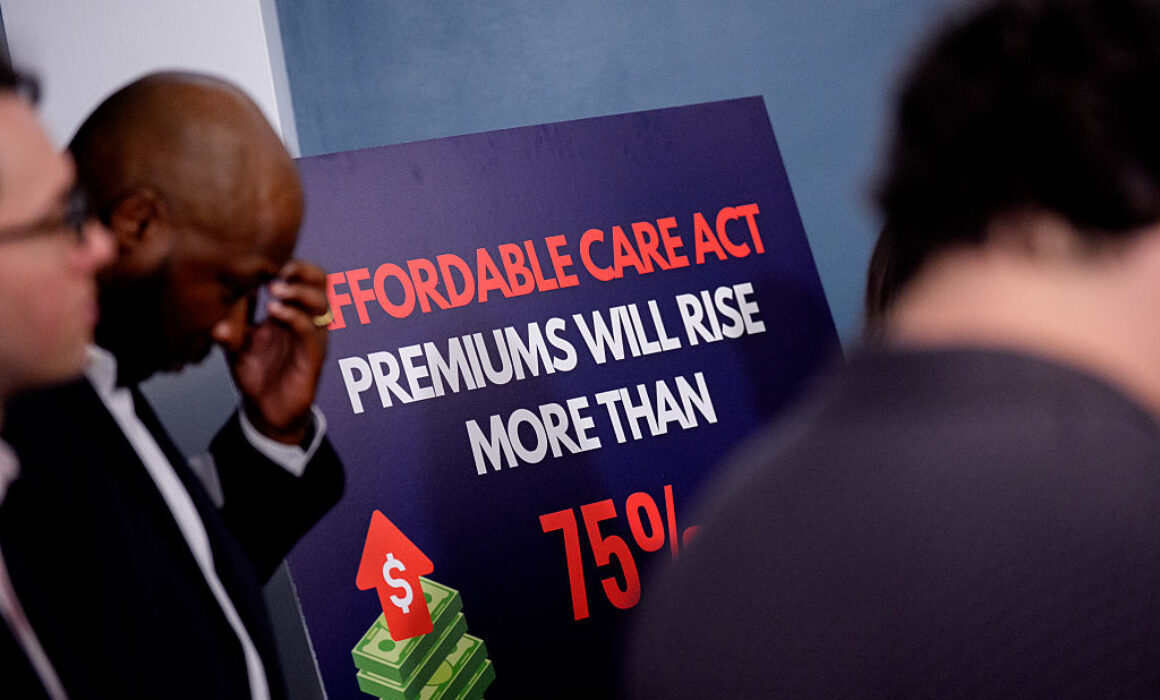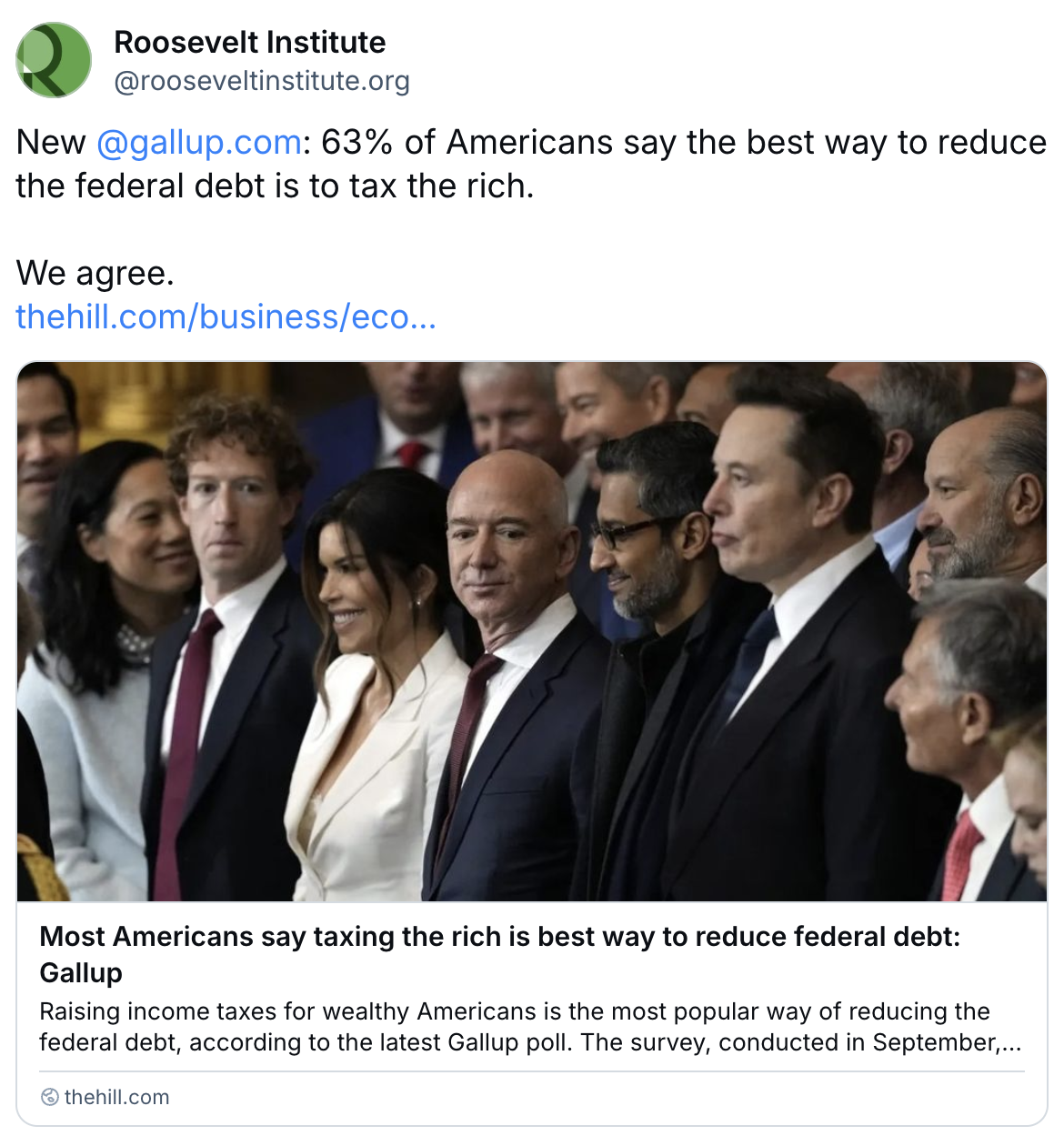What the Shutdown Means for the Health-Care Cost Crisis
October 17, 2025
Plus, the little-discussed way states and localities fund infrastructure projects
The Roosevelt Rundown features our top stories of the week.
A sign reads “Affordable Care Act Premiums Will Rise More Than 75%” at a news conference on September 16, 2025. (Andrew Harnik/Getty Images)
The Expiration of ACA Credits Will Make a Bad Situation Worse
The United States has a health-care cost crisis. High premiums, large deductibles, and unpredictable copays strain families’ finances, even among those who have insurance, and claim denials and prior authorization requirements mean insurance doesn’t always work the way it’s supposed to.
As a new Roosevelt fact sheet explains, this cost crisis has given way to a medical debt crisis: “An estimated 41 percent of US adults (~107 million people) carry some form of medical debt, which includes unpaid medical provider bills, credit card balances, bank loans, or debt to friends/family. About 24 percent of adults have past-due medical debt.”
The expiration of enhanced Affordable Care Act marketplace plan subsidies at the end of the year would only worsen the crisis. The expiring tax credits, Roosevelt Fellow Miranda Yaver tells MSNBC, will mean “dramatic premium increases faced by marketplace enrollees.” And Congress is currently ignoring the issue, keeping the House closed and the government shut down as we hurtle toward open enrollment season. As Yaver points out, “While the enhanced premium tax credits are set to expire at the end of 2025, the start of open enrollment is around the corner on Nov. 1.”
For recommendations on how to rein in these ballooning costs, read the fact sheet: “The Health-Care Debt and Cost Crisis”
Funding Infrastructure Without the Federal Government: The Municipal Bond Market
When the federal government fails to directly finance local infrastructure, state and local governments are forced to cover those costs themselves, which they do primarily by issuing municipal bonds.
But overreliance on the often-overlooked and highly technical municipal bond market introduces its own set of limitations and adverse consequences, as Roosevelt’s Oskar Dye-Furstenberg explains in a new brief.
“By providing interest income and exemption from federal and sometimes state income taxes, municipal debt can compound existing disparities in wealth, whereas an enhanced system of direct taxation could instead more efficiently redistribute it,” he writes.
The brief also envisions what a better municipal bond market could look like, offering an options menu of policy proposals for national and local policymakers, financial regulators, and unions.
Read the brief: “Financing State and Local Investment: Uses and Limitations of the Municipal Bond Market”
What We’re Talking About
What We’re Reading
- On Social Security: The Trump administration is reportedly preparing to make significant cuts to Social Security Disability Insurance, which the Center on Budget and Policy Priorities predicts will disproportionately harm older and more rural Americans.
- See our Social Security hub for ongoing coverage of the threats to Social Security.
- On industrial policy: The AI sector is booming, while the manufacturing sector has lost 38,000 jobs so far this year. For workers, the trade-off doesn’t even out: Experts project that AI investments will yield fewer employment opportunities for regular Americans, while a lack of intentional policymaking in this sector means profits will continue to funnel up to a handful of tech companies.
- “You really to some extent have won a lottery ticket as a blue-collar worker if you have a manufacturing job,” Roosevelt Program Director Todd N. Tucker told the Washington Post.
- On the gender and racial employment gap: Roosevelt Graduate Fellow Anna Gifty Opoku-Agyeman is highlighting warning signs in Black women’s employment numbers over the past few months, when more than 300,000 Black women left the workforce.
- “Usually when Black women are not faring well in the market, it’s speaking to larger frictions that haven’t yet been fully realized with other groups,” she told Politico.



